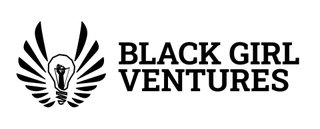
JFF Announces New Executives in Residence Program for Education and Future of Work Pioneers
JFFLabs EIRs will explore the use of data to promote a more equitable and inclusive economic recovery.

February 15, 2022
Facing inequity in startup funding, Black female founders find self-efficacy an in-demand skill.
Black entrepreneurs start their businesses with less funding than white entrepreneurs and receive only 1 percent of venture capital funding. The challenges only grow for Black women: Black female startup founders received 0.34 percent of the total venture capital spent in the United States in 2021.
In my experience as an investor, those women who do start businesses often lack access to funding, as well as one other key mark of success: entrepreneurial self-efficacy (ESE), the self-confidence that one has the necessary skills to succeed in creating and sustaining a business. A 2021 report from the Global Entrepreneurship Monitor noted that only 29 percent of women consider themselves capable of successfully starting a business, compared to 42 percent of men.

Black Girl Ventures (BGV), a fund, organization, and community I founded and lead, addresses many key challenges of Black founders and provides business and leadership training to catapult women into entrepreneurship as a career or develop a skill that leads to an executive role. The program assesses each entrepreneur’s ESE, a strong predictor of entrepreneurial intentions that can be increased through formal training, education, and experience. Program sprints drive an individual’s confidence in their capability to accomplish a specific set of tasks, improving the rate of entrepreneurial activities through asynchronous learning, mentoring, and coaching from entrepreneurs and corporate mentors.
The force behind our programs of note is the JetPack Curriculum—a fast-paced, rapid result business education experience created to empower founders to grow their entrepreneurial mindset using our tools and framework to help them develop their playbooks for success. JetPack’s ESE-driven learning plans can facilitate the growth of intrapreneurship among current employees, and its learning objectives are closely aligned to critical nascent entrepreneurship behaviors and increasing entrepreneurial actions.
We also provide over $100,000 in entrepreneur programming, education, and financial literacy to start, grow and manage a business. JetPack can play a pivotal role in guiding entrepreneurs through marshaling required resources towards meeting business goals and a strategic vision. Founders surround themselves with the right mix of resources, including people, capital, and partners.
Entrepreneurial self-efficacy is measured across five dimensions:
The measure of all five dimensions allows founders to identify pain points where they are at risk for disengagement or premature abandonment of the business plan. When combined, however, the outcome of these sprints drives the participant’s self-efficacy and perseverance.

In the Implementing People ESE dimension, for example, JetPack’s self-reported participants reported a 17 percent increase in confidence in cultivating relationships and professional social capital, and an 11 percent decrease in uncertainty in this area. Entrepreneurs self-defining as “super confident” decreased, but the number defining themselves as “seeking to improve” grew. Throughout the program, founders also built a business canvas around revenue and cost structures, and identified their challenges with money. This raised their awareness of financial processes and frameworks while decreasing uncertainty and increasing confidence and efforts to improve financials.
This self-efficacy building approach is working: among Black founders in the BGV community, 60 percent collectively generate $11 million in revenue and support 2,500+ jobs. They also raise twice the average capital of other Black-owned businesses.
People are more likely to limit their career decisions because of their lack of confidence in their abilities, and women in particular avoid entrepreneurial endeavors because they think they lack the required skills. But improving the odds of success for Black entrepreneurs should be a primary focus of efforts to leverage business ownership to reduce the racial wealth gap. The success of Black businesses and ventures will not only generate personal income—it will also contribute to the economic development and vitality of the communities in which Black Americans live and work.

JFFLabs EIRs will explore the use of data to promote a more equitable and inclusive economic recovery.

Team Our team has decades of experience in impact investing, entrepreneurship, and education and workforce technologies. We are pleased to have been recognized as an emerging fund manager by ImpactAssets for three years in a…

Our social and economic recovery depends on impact-driven leaders designing visionary solutions that work.

Driving innovation through insights, incubation, and investment. New technologies and models are radically transforming our workforce and education systems. These shifts create opportunity but also risk reinforcing systemic inequities. Promising solutions that maximize learner opportunity…